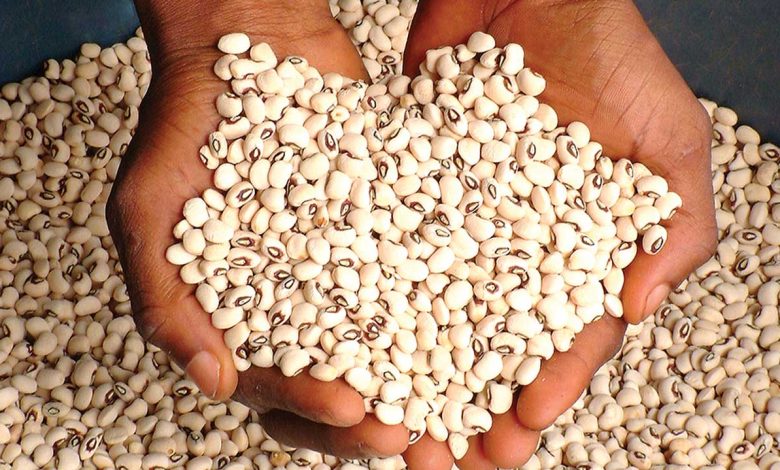Beans becoming too expensive for average Nigerians

Beans, once a staple food and affordable source of protein for many families in Nigeria, are now slipping off dinner tables due to rising prices.
Traditionally a key part of the diet for low- and middle-income households, the cost of beans (cowpea) has surged recently. Factors like inflation, poor harvests, and regional security issues have significantly affected agricultural production.
In July 2024, the National Bureau of Statistics (NBS) reported that bean prices reached unprecedented levels, alarming consumers and farmers alike. A 50kg bag of beans has more than doubled in price over the past two years, with a dramatic increase of over 100% in just the last year.
Primarily grown in northern states such as Borno, Gombe, Kano, Sokoto, Yobe, and Zamfara, beans are essential to the Nigerian diet. Analysts note that the rising cost of fertilizers—up by an average of 83% across 13 African countries and 111% in Kaduna State—has impacted production. The ongoing conflict between Russia and Ukraine, major fertilizer exporters, has also disrupted supply chains.
Without effective interventions, beans may soon become a luxury for many Nigerian families, worsening both economic and nutritional challenges.
For many, the high cost of beans has forced them to change their diets. Amina Bello, a mother of five from Kaduna, shared, “Beans used to be a regular meal for us, but now we can only afford it once a week. We’ve had to switch to less nutritious alternatives like cassava and maize. Popular dishes like ‘moin-moin’ and ‘akara’ are disappearing from many tables.”
Nutrition experts warn about the long-term effects of reduced bean access on food security and public health. Albert Akintoye, a nutritionist, cautions that limited access to beans could increase malnutrition, especially among children. “Beans are a major source of protein and essential nutrients. Their reduced availability could have serious health consequences,” he explained.
Another nutritionist, Sarah Andoaka, noted that beans help people feel full and contribute to overall well-being. She stated that when beans are removed from diets, it may lead to nutritional gaps that affect energy levels and health.
The Cowpea Farmers Association of Nigeria (CFAN) revealed that they are working to address these issues. Tunfafi, the deputy chairman of CFAN in Kano State, explained that the high cost of beans is a result of several factors, including decreased production last year due to conflicts and rising costs of agricultural inputs. He also pointed out that some merchants are exporting beans to neighboring countries, further limiting local supply.
In response, the Nigerian government has introduced policies aimed at boosting local production and stabilizing food prices. However, many believe these efforts are not enough to tackle the underlying challenges.
To change the situation, Abubakar Kyari, the Minister of Agriculture and Food Security, announced new measures, including distributing fertilizers to farmers and procuring tractors. As the rainy season continues, research institutions like the International Institute for Tropical Agriculture (IITA) are working to improve bean production. Recently, IITA held a workshop focused on enhancing the distribution of improved cowpea seeds to smallholder farmers.
Professor Lucky Omoigui, a seed specialist at IITA, explained that the workshop aimed to unite stakeholders in the legume seed value chain and create a roadmap for improving production in the 2024 wet season.
Experts agree that a comprehensive approach is needed to stabilize prices and enhance local production. Bukar Shehu, a food security expert, advocates for better farming practices and support systems to increase productivity and lower costs. He emphasized the need for improved storage and transportation infrastructure to reduce post-harvest losses.
Moreover, Shehu stressed the importance of researching high-yield and drought-resistant bean varieties. He also suggested cooperative farming initiatives to reduce costs and strengthen farmers’ bargaining power.
Stakeholders believe that government policies to stabilize prices and address inflation are crucial for long-term solutions. Additionally, educating consumers about alternative food options and promoting urban agriculture could help ease the pressure on bean prices by diversifying food sources.





